'Hong Kong has no future like this': Singaporeans living in Hong Kong share their concerns about escalating protests
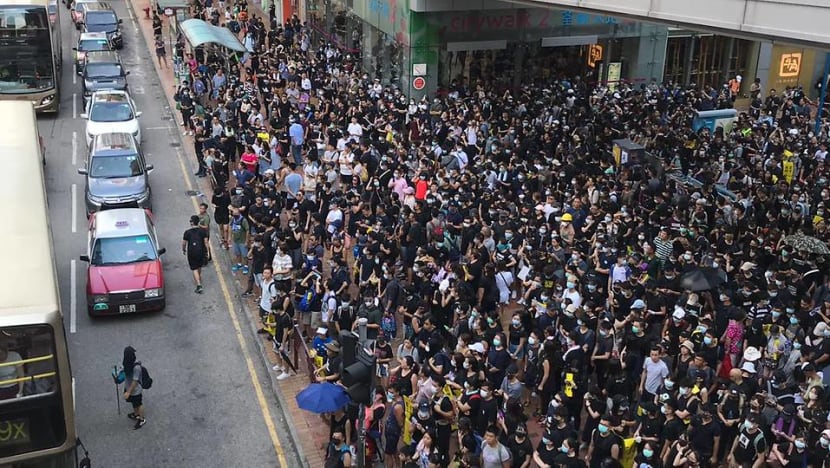
Hong Kong protesters seen at Tsuen Wan, City Walk Mall on Aug 5, 2019.
SINGAPORE: As tensions escalated in Hong Kong on Monday (Aug 5) with police firing tear gas and rubber bullets at demonstrators, some Singaporeans based in the financial hub have raised their concerns about the future of the city, with one even considering if it is time he moves back home.
"Hong Kong has no future like this," said Hung Leung Chee, a 33-year-old Singaporean who moved to Hong Kong three years ago.
“(The protests) have restricted my movements greatly since the unrest started back in June.
“I have been worrying about my way to work since last night. I have been keeping a close eye on the news since I woke up - mostly on traffic information," he said, referring to the disruptions on Monday morning that left the city at a standstill.
"I'm very much considering moving back to Singapore," he said.
READ: Beijing officials to address Hong Kong unrest on Tuesday
READ: Pro-democracy protesters cause transport chaos in Hong Kong
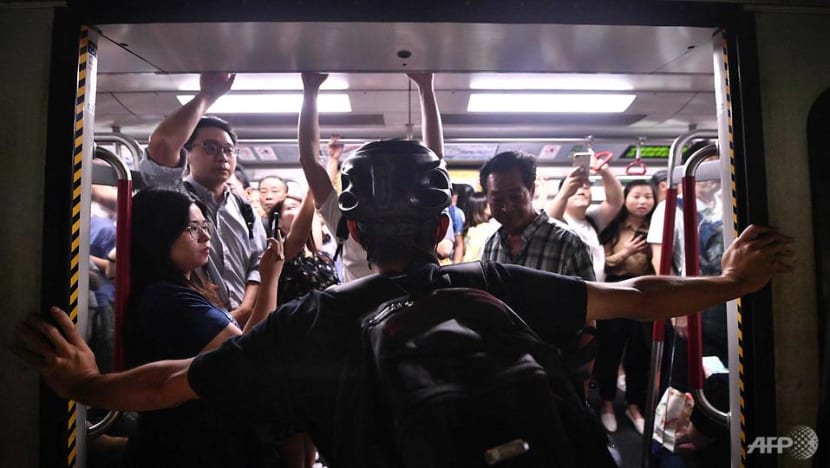
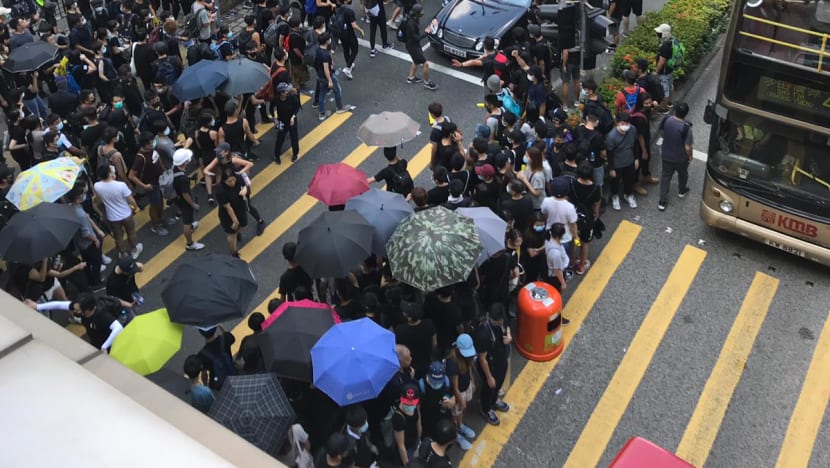
AN "EERIE FEELING"
Others, like 27-year-old Elissa, said it was an "eerie feeling" seeing the clashes across Hong Kong.
"Hong Kong has always been such a safe and efficient place. If you told me just three months ago that this would happen, I would have never believed it," she said.
"It’s almost a norm now to expect some clashes and protests to happen somewhere every day.
"I’ve stopped making plans to do activities or see friends over the past few days due to the uncertainty of what may happen and risk being stuck," she said.
READ: What lies ahead for Hong Kong, a city on edge
One expectant mother said she was worried about being caught up in the violence during her commutes.
“I worry about … violence during the commute. I think as long as one avoids the main protest areas, the probability of violence is low. But more and more disruptions and protests are happening during the morning commute and I do worry that it can escalate to violence,” the 32-year-old Singaporean said.
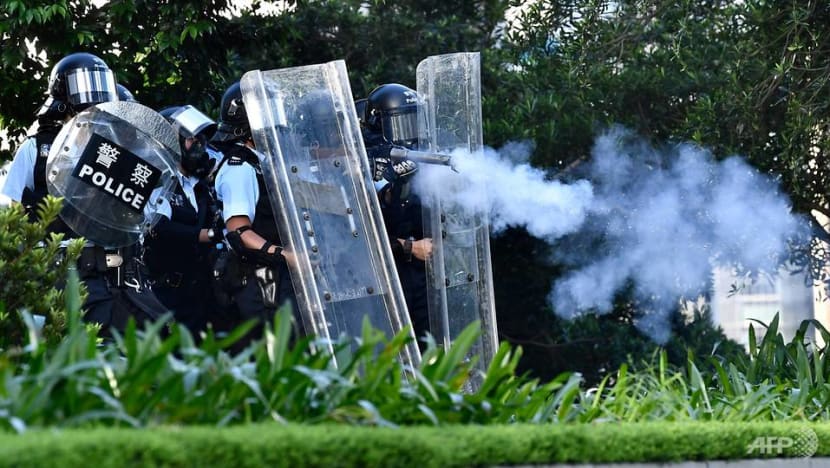
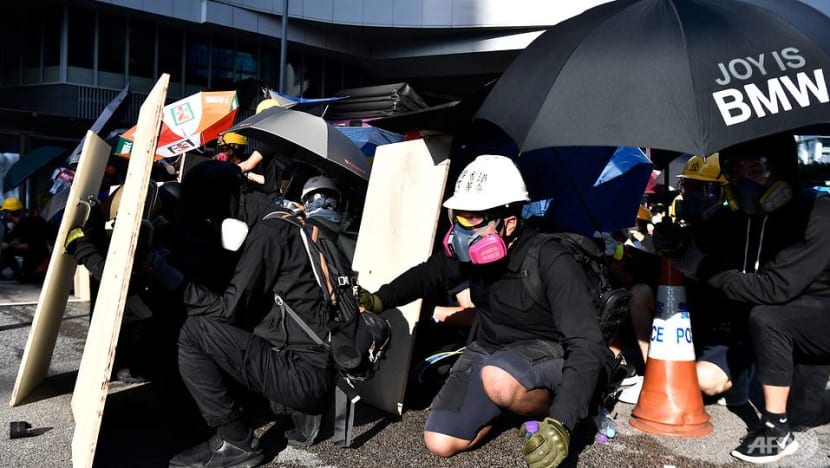
NOT FEARFUL "FOR NOW", CONCERNS ARE OVER LONG-TERM IMPACT
While some Singaporeans expressed their concerns over issues of security and violence, others told CNA the situation has yet to affect them significantly.
"Other than trying to stay at home on weekends when planned protests have been announced. I would say that it has not caused any major inconvenience to my lifestyle as of yet," said 34-year-old Nick, who works in finance.
"I do have to say though that there is a constant worry on how long more the protests will stay and evolve, seeing how there still has been no clear resolution in sight," he added.
READ: Hong Kong police say 420 arrested, 1,000 rounds of tear gas fired since Jun 9
One reader told CNA that while she was affected by the closures and disruptions, she was not bothered by the protest-related “inconveniences” and was more concerned about the impact on Hong Kong’s financial sector and the reputation of the city.
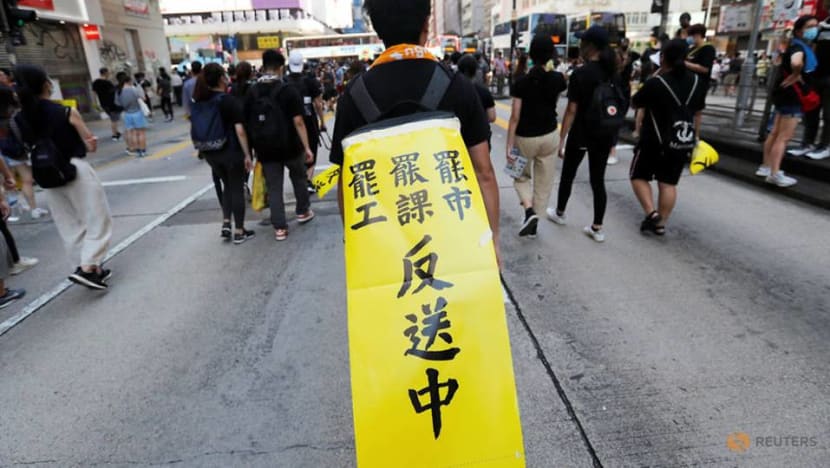
Another Singaporean said although he is not fearful "for now", he will be keeping a close eye on developments.
"In general, up to yesterday, Singaporeans in Hong Kong have been able to keep track of protest areas and avoid those areas for safety," said James Teo, a Singaporean lawyer living in Hong Kong.
"However, with protests now springing up spontaneously, like the occupation of Causeway Bay yesterday, we no longer know which is the next area to be hit by protests and tear gas," he said.
"Especially since police do not seem to take into account the neighbourhood surroundings when releasing tear gas, we now no longer know where the next danger area will be," he said.
"I'm keeping a watchful eye on developments, and staying safe."
READ: More than 200 flights cancelled at Hong Kong airport
"TOTAL TRANSPORT PARALYSIS ON THE MTR"
On Monday, protesters in Hong Kong congregated in several different districts in the city, ramping up their demonstrations in scale and intensity in an effort to ramp up pressure on the financial hub's leaders and bring more attention to their demands.
During the morning rush hour, activists descended on multiple Mass Transit Railway (MTR) lines, deliberately keeping doors open to stop trains from departing, causing long queues and triggering occasional scuffles between angry commuters and protesters.
Mr Teo described the situation as a "total transport paralysis on the MTR".
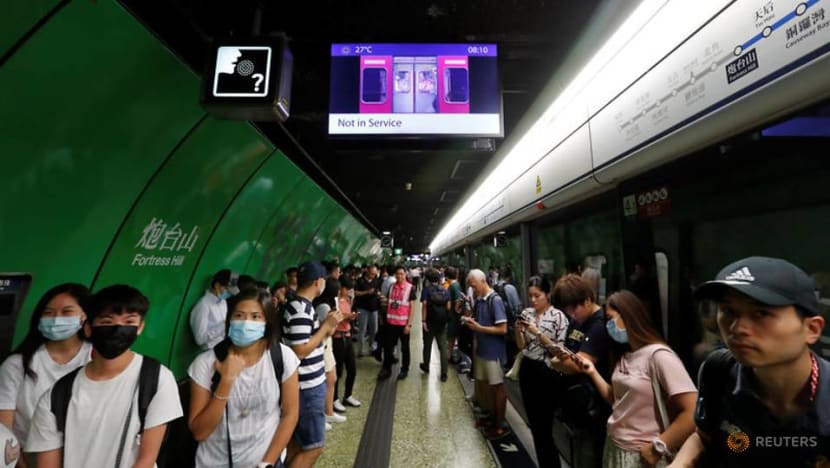
Rail operator MTR Corp announced the suspension of services between the bustling shopping district of Causeway Bay and Quarry Bay on Hong Kong Island. Services from Kowloon Tong to stations close to the border with mainland China were also disrupted, Hong Kong media reported.
More than 200 flights at the city's airport - one of the world's busiest - were also listed as cancelled on Monday morning after aviation authorities warned passengers about potential disruptions.
READ: The tough choices for China over Hong Kong unrest
Hong Kong’s leader Carrie Lam in a news conference hours later warned that the city was on the verge of an "extremely dangerous situation", a signal to Ms Elissa that planned protests for Monday afternoon would be disruptive.
“From her speech, we knew the rallies this afternoon would be bad and were told by HR and managers to leave the office at noon and work from home to avoid being stranded,” said Ms Elissa, adding that her usual 15-minute bus ride to work turned out to be almost an hour-long instead.
Some companies, anticipating the disruptions, had already made alternative work arrangements in preparation for Monday's planned rallies.
A Singaporean working in the banking industry told CNA: “We were advised to work from home with our manager’s approval."
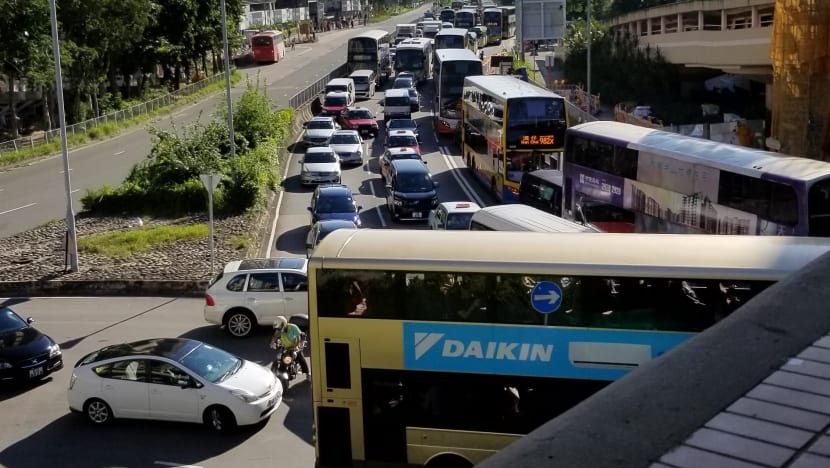
Others, like Mr Hung, who had attempted to go into the office, were forced to abandon those plans.
READ: Hong Kong chief executive Carrie Lam says extradition Bill is 'dead'
“The lines to the buses were crazy long and there was no telling how long I had to wait to get on one.
“So I took a couple of pictures of the jam and chaos to show my boss and returned home,” he said.
“Furthermore people are gathering in several districts as we speak and from experience, these gatherings mostly end up in a riot. So I think it is safer to remain at home,” he said.
RIOT POLICE FIRE TEAR GAS
The concerns expressed by the Singaporeans were not unfounded, with riot police firing tear gas at protesters at several locations across Hong Kong after some demonstrators besieged police stations and hurled umbrellas and other items at officers.
The police said that they had repeatedly warned the demonstrators to stop the "illegal acts" and used tear gas and the "least force" to disperse the crowd.
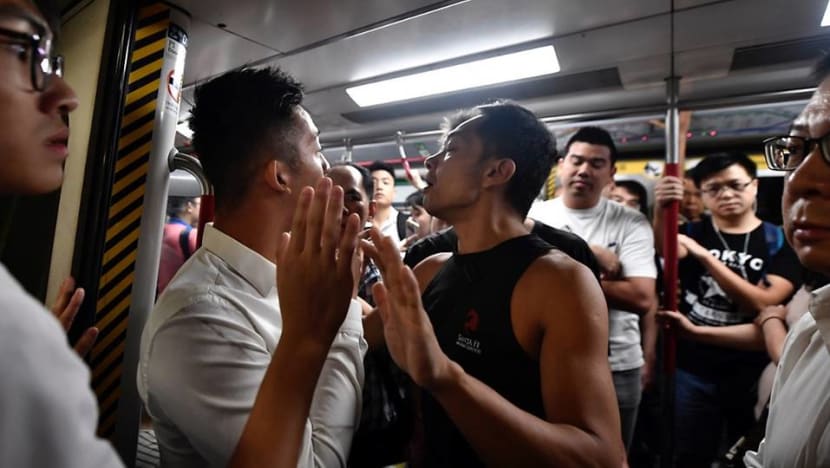
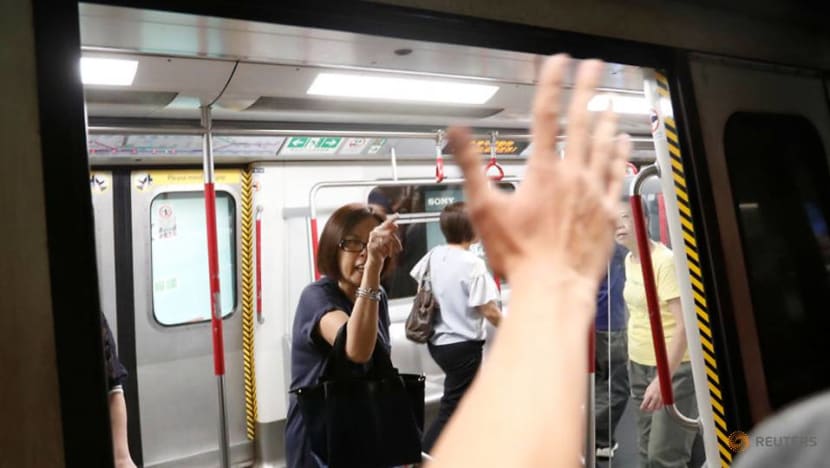
The demonstrators also blocked key roads, including three tunnels, cutting major arteries linking Hong Kong Island and the Kowloon Peninsula. In Yuen Long district, a car rammed through a barricade, knocking down protesters.
Thousands of black-clad protesters later occupied roads in Admiralty district near government buildings for several hours before moving to other areas. By nightfall, protests continued across the city.














